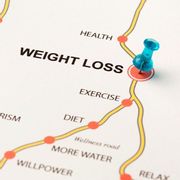A Reasonable Approach to Weight Loss for Older Americans

Losing weight can be achieved safely at any age with the help of weight loss professionals. The help of a Registered Dietitian can allow an individualized approach to safe, effective weight loss taking in to consideration age, health risks, and medical history. This can allow a more tailored approach to calorie and protein needs for adults over 50.
Weight Loss in Older Adults
Older adults often lose bone density and muscle mass when they begin to lose weight, however having the right plan in place can prevent this from happening. The risks of losing muscle mass in older adults include a reduction in mobility and/or an increased risk of injury.
Some examples of the benefits of sustained weight loss in older adults include an increase in mobility and the ability the stay active longer, reduced risk of heart disease, and higher quality of life as normal routines can be maintained.
Nutrition for Older Adults
With unique nutritional needs in older adults, focusing on nutrient dense foods is a good place to start. If a person can decrease some high-calories foods that lack vital nutrients they can incr ease the overall quality of their diet.
ease the overall quality of their diet.
The latest research suggests that a diet higher in protein while reducing calories is very beneficial for the aging population to lose weight safely. In fact, one study confirms by following a higher protein diet seniors can achieve the benefits of weight loss, but also keep the muscle and bone density they need for the years ahead.
Key Nutrients for the Aging Population
- Calcium & Vitamin D – 1,000-1200 mg of Calcium is needed for those 50+ to help prevent osteoporosis. Consuming calcium-rich foods like milk, yogurt, and foods fortified with Calcium and Vitamin D are great choices.
- Protein – Adequate protein is needed for older adults to maintain muscle mass as well as fight infection and recover from injury. Meet with a Registered Dietitian to determine how much protein you need each day.
Ideas for Adding Protein to Your Diet:
- Mix shredded cheese in to scrambled eggs.
- Make oatmeal with milk instead of water.
- Add beans to salads, soups and rice dishes.
- Add peanut butter to celery or an apple for a quick snack.
Keys to Strength Training for Weight Loss
After the age of 50, your muscle mass decreases by about 1–2% per year, while your muscle strength also declines. Adding muscle-building exercises to your routine can reduce age-related muscle loss, while promoting a healthy body weight. Strength training can significantly improve muscle strength and increase muscle size and function.
Weight loss can be achieved at any age, however it depends on the approach and the needs of the individual. For more information on safe, effective weight loss in Lincoln, NE or Omaha, NE please visit WeightLossNebraska.com.

About the Business
Have a question? Ask the experts!
Send your question

